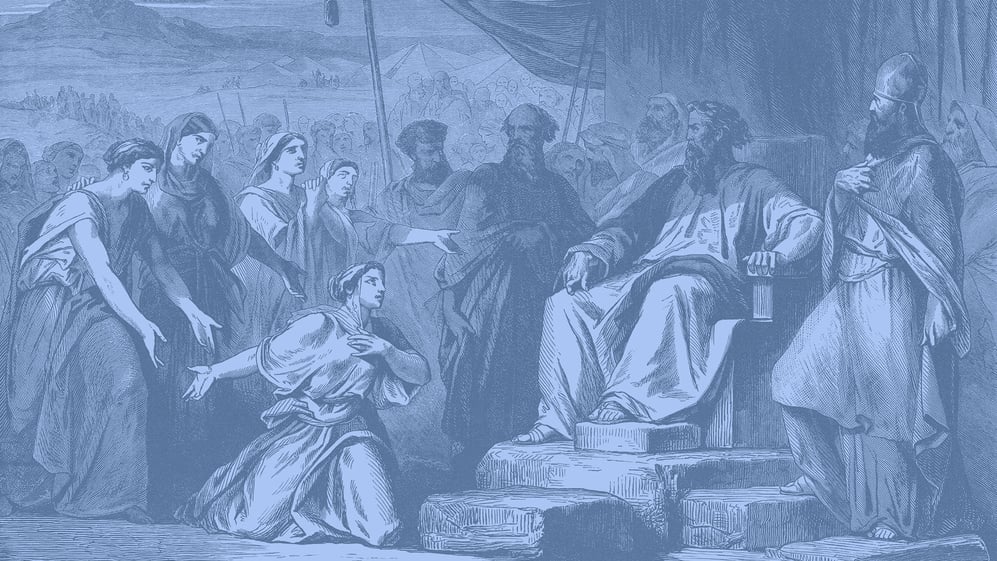The Book of Numbers gets its name from the censuses in chapters 1 and 26. It recounts the travels and experiences of the people of Israel from Sinai to the borders of Canaan. Laws and directives of all kinds are scattered throughout Numbers and interspersed with Israelite history. Read an excerpt from the Lutheran Bible Companion: Volume 1 below to learn about some of the laws that governed the Israelites.
Old Laws
Many legislative sections contain directives already given in Exodus and Leviticus (cf Numbers 28:6: “ordained at Mount Sinai”) but are here elaborated and their meaning deepened. Among these are:
- The removal of unclean persons from the camp (5:1–4) and restitution for wrongs done (5:5–10).
- The laws of sacrifice, emphasizing the meal offerings (ch 15).
- The rights and duties of the Levites (ch 18).
- The laws regarding offerings on established feast days and regarding vows (ch 28–30).
- The cities of refuge (35:9–34).
New Laws
Other sections deal with entirely new provisions, such as:
- The law of jealousy (5:11–28), which submits a wife to a test resembling an ordeal when a husband suspects her of unfaithfulness.
- Regulations governing the vows of a Nazirite (6:1–21), meaning “one separated” (not “Nazarene”). Although all Israel is holy, these volunteer Nazirite vows demonstrate extraordinary consecration to God.
- The cleansing of the Levites (8:5–26), who, like the priests, were admitted to their appointed service in the tabernacle only after the proper rite of installation.
- Tassels (with one blue thread) on the garment corners (15:37–41) were to help a person “remember all the commandments of the LORD.”
- Purification through the ashes of a sacrificial red heifer (ch 19), mixed in water with the ashes of cedar, hyssop, and scarlet yarn, would cleanse a person defiled by contact with a corpse (5:2; 9:6).
- Laws of inheritance (27:1–11; cf 36:1–12) provide that a man without sons could pass his inheritance also through his daughters, provided that they married men of their own tribe.
- The offerings for the seven days of unleavened bread (28:17–25).
Laws Temporary and Permanent
Some of the laws and provisions were designed only for the period of wilderness wandering—for example, the grouping of the tribes about the tabernacle, the marching formations, the signals for beginning and ending a journey, and exclusion from the camp for various reasons.
Other laws were to apply immediately and to remain in force ever afterward—for example, blowing the trumpets for directing the movement of camps on their journey (10:2), in war, and in celebration of appointed feasts and the regulations regarding the consecration and function of priests and Levites.
Many prescriptions deal only with the conquest and possession of Canaan—for example, driving out all the inhabitants of Canaan (33:50–56); marking the boundaries of the land (ch 34); assigning 48 cities to the Levites (ch 35), six as cities of refuge in the case of manslaughter.
Finally, some rites were to begin when they came into the land (15:2)— for example, meal offerings (impossible in the desert) were to accompany the animal sacrifices (chs 15; 28; 29).
Laws in a Framework of Events
Like Exodus and Leviticus, Numbers does not codify laws according to subject matter. But some legislative material and some new directives are added as certain situations develop.
The rights and duties of the Levites are enumerated in connection with their location within the camp, the formation of which required the taking of the census (chs 1–4). Further clarification of Levitical authority resulted from the uprising of the Levite Korah (16:1–7). The allotment of 48 cities to the Levites (ch 35) follows the provisions for dividing “the land to you for inheritance” (34:16–29). The Levites’ purification for service appears in the context of the completion of the tabernacle (ch 8; cf 7:1).
The law regarding female inheritance (27:1–11; 36) grew out of the second census, during which a man named Zelophehad was found to have only daughters (26:33).
After the defeat of the Midianites, rules for the conduct of war became necessary (31:14–31).
Such obvious connections do not always exist. For example, though laws regarding the removal of unclean persons from the camp (5:1–4) follow the setting up of the camp (chs 1–4), the immediately following statutes (i.e., regarding restitution for wrong, the law of jealousy, and the prescription for a Nazirite; 5:5–6:21) have no direct connection with the camp itself.
Particularly after their arrival on the plains of Moab (22:1), legislation tends to anticipate the future, when Israel will be living in the Promised Land (e.g., chs 28–29, concerning offerings in the land, mentioned after Moses’ successor is named in 27:12–23).
Post adapted from Lutheran Bible Companion, Volume 1: Introduction and Old Testament, copyright © 2014 Concordia Publishing House. All rights reserved.
Dig deeper into your study on the Old Testament with historical documents, images, and insights by ordering the companion below.













